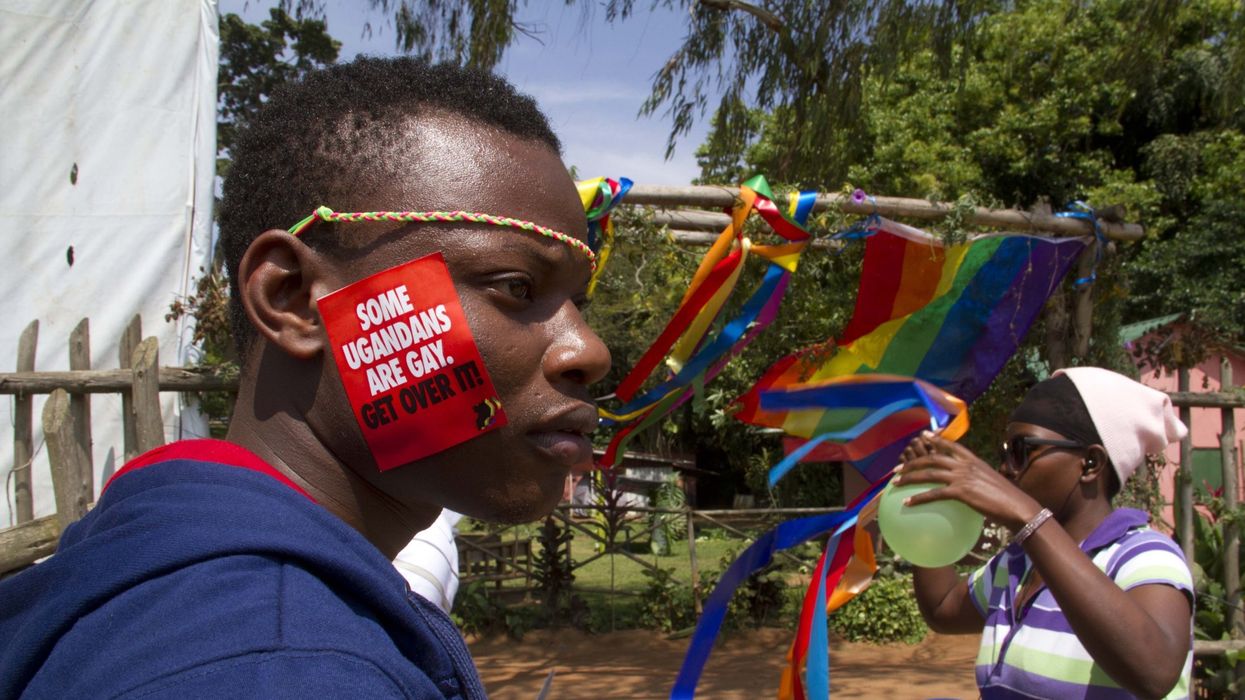(CNN) — The United Nations and United States on Wednesday added to international outrage over a hardline bill passed by Ugandan lawmakers that criminalizes simply identifying as LGBTQ+, prescribes a life sentence for convicted homosexuals and a death penalty for "aggravated homosexuality."
The UN's High Commissioner for Human Rights asked Ugandan President Yoweri Museveni not to sign the bill passed by lawmakers on Tuesday. Volker Türk called the Anti Homosexuality Bill 2023 "draconian," saying it would have negative repercussions on society as a whole and violates the nation's constitution.
"The passing of this discriminatory bill — probably among the worst of its kind in the world — is a deeply troubling development," said a statement from Türk's office.
"If signed into law by the President, it will render lesbian, gay, and bisexual people in Uganda criminals simply for existing, for being who they are. It could provide carte blanche for the systematic violation of nearly all of their human rights and serve to incite people against each other."
US Secretary of State Antony Blinken slammed the bill, which would "undermine fundamental human rights of all Ugandans and could reverse gains in the fight against HIV/AIDS," he tweeted on Wednesday. "We urge the Ugandan Government to strongly reconsider the implementation of this legislation."
US Ambassador to the United Nations Linda Thomas-Greenfield spoke twice this week with Museveni to express "deep concern" about the legislation, a US official told CNN Wednesday.
The new legislation constitutes a further crackdown on LGBTQ+ people in a country where same-sex relations were already illegal -- punishable by life imprisonment. It targets an array of activities, and includes a ban on promoting and abetting homosexuality as well as conspiracy to engage in homosexuality.
According to the bill, the death penalty can be invoked for cases involving "aggravated homosexuality" — a broad term used in the legislation to describe sex acts committed without consent or under duress, against children, people with mental or physical disabilities, by a "serial offender," or involving incest.
The bill must now go to Museveni for assent. Last week he derided homosexuals as "deviants."
Uganda made headlines in 2009 when it introduced an anti-homosexuality bill that included a death sentence for gay sex.
The country's lawmakers passed a bill in 2014, but they replaced the death penalty clause with a proposal for life in prison. That law was ultimately struck down.
The new bill has wide public support in the highly conservative and religious East African nation, where anti-LGBTQ+ sentiment is deeply entrenched.
But it has drawn strong criticism from civil society groups and LGBTQ+ activists. "It is another way of using the law to punish people who cause no harm but for being who they are," said a tweet from Pan Africa ILGA.
"As a community, partners and allies, we'll do everything to ensure that the constitutional rights that are given to the LGBTI community are met and the legal provisions that are available for us will definitely be looked into if the president assents to this bill and it gets to be law," activist Richard Lusimbo told CNN.
Pepe Onziema, a transgender LGBTQ+ rights activist and program director of Sexual Minorities Uganda (SMUG), a non-governmental organization for LGBTQ+ rights, whose operations were shut by authorities last year, told CNN members of the community were now living in fear.
"We've been having quite excruciating anxiety from the threats of the bill. And now that it has actually passed in Parliament, the [LGBTQ+] community is quite in fear," Onziema said. "There's a large community of LGBTQ persons in the country, so we can't just give up. We'll find different ways of working. We might not be as visible as we've been because there are attacks online as well."
African Rainbow Family, a UK-based charity that supports LGBTQ+ Africans seeking refuge in the UK, described the bill as an "assault" and "persecution" of Uganda's LGBTQ+ community.
"African Rainbow Family condemns in its entirety, the passing of the Ugandan 'Anti-Homosexuality Bill 2023' into law. The law is a violation of the fundamental human rights of LGBTIQ people in Uganda.
"African Rainbow Family sees this law as again, an assault and added layer of State and non-State agents' persecution of Ugandan LGBTIQ community," it told CNN.
Feminist writer and Human Rights Activist Rosebell Kagumire told CNN the new legislation could have other consequences beyond human rights violation.
"Seeking to strip LGBTQIA persons of their whole humanity, it extends to deny them housing, education and health care. In a country where AIDS is still an epidemic and men who have sex with men and trans women [and] sex workers are still faced with higher incidence, this law will criminalize health care provision and defeat the whole struggle to end AIDS," Kagumire said.
For human rights lawyer Sarah Kihika Kasande, "If President Museveni assents to the bill, it will authorize state-sanctioned attacks and persecution against LGBTQ persons."
Seeking refuge elsewhere might be the "last resort" for some members of Uganda's LGBTQ community, Onziema says.
"Asylum is sort of a last resort for us, but for people who are really under a lot of threat and feel that they can't live here anymore, as a leader in this community, I would definitely support them to seek refuge elsewhere.
"But it's difficult to seek asylum, especially as a Black queer person. Your chances are sort of narrowed down even further. But I believe that the few people who are looking at that as an option, we are hoping that the countries that they choose to go to for refuge will actually accept them and not further marginalize them," he told CNN.
The-CNN-Wire
™ & © 2023 Cable News Network, Inc., a Warner Bros. Discovery Company. All rights reserved.
- Bella Ramsey Says Anti-LGBTQ Last of Us Viewers 'Just Have to Get Used to It' ›
- Anti-LGBTQ+ Bills in 2023 Already Surpassed Amount Proposed in Entirety of 2022 ›

















































